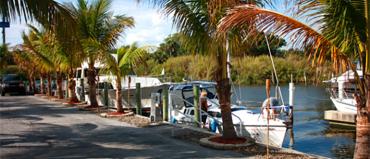
Despite a new, business-friendlier commission majority elected last fall in Martin County, the dictatorial regime of the last commission woke up a pair of unincorporated Martin communities.
Leaders in rural Indiantown in western Martin County and to a lesser extent in Hobe Sound, 18 miles farther east, are tired of living at the whim of commissioners who think they know better than the citizens what's good for them.
They want independence.
Rep. MaryLynn Magar, R-Hobe Sound, is carrying their banner in the Florida House and has filed HB 259 (Indiantown) and HB 261 (Hobe Sound).
If the Legislature approves, residents of the two communities -- approximately 6,000 and 15,000 respectively -- will decide at the polls in November if they want to be incorporated as the Village of Indiantown and the Town of Hobe Sound.

Even with the full support of their legislative delegation, this could be easier said than done for Magar and community leaders. They will be arguing their case in an extremely conservative Florida House, a House reluctant to endorse new government of any kind. But both communities emphasize smaller government closer to the people and particularly in far-flung Indiantown's case, the dire need for sovereignty. Their interest, they say, is more to replace rather than create new government.
"I believe very strongly that the best government is local government," said Ed Ciampi, one of the supportive new Martin County commissioners. "Instead of having one representative and four strangers from out of town making decisions for them (Hobe Sound and Indiantown) will each elect five of their own residents who live within their respective areas, to make the decisions that directly affect their own residents."
In fact, much-aggrieved Indiantown, more than 100 years old, has it worse than "four strangers." It hasn't had a representative on the Board of County Commissioners for more than 30 years.
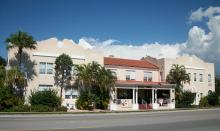
When I first showed up in Stuart in 1977, Indiantown rancher John Holt was on the commission and his brother Jim was Martin's long-time, respected sheriff. Timer Powers' activism on Indiantown's behalf was already legendary and still going strong. And though economic progress was slow-moving back then, you could never say Indiantown was invisible or without a voice. But commissioners have come and gone since. Some, like Charlene Hoag in the 1990s -- a commissioner from Palm City who represented Indiantown -- increased government services and infrastructure in the western town. But generally, its fate has been tied, hit-or-miss every four years, to whichever commission -- pro-growth or no-growth -- came to power.
The six years before last fall's election were the straw that broke the camel's back.
Top to bottom, Martin County was run by a non-elected cabal of environmental litigators, a pair of county commissioners (one a lawyer) and groupies who show up at public meetings to stroke the commission majority on camera. Mostly, however, the power and directional decisions for the county came from the attorneys. One in particular, unelected Virginia Sherlock -- after conferring with unelected former commissioner Maggy Hurchalla -- literally directed the commission's goals before every meeting. Sherlock would issue a memo telling commissioners how to vote. Nobody complained. Nobody said a word. Most of the time, they just did what Sherlock told them.
"We don't want to be told what to do any longer by a shadow government that works against the economic and quality of life issues that are close to the Indiantown residents," resident Kevin Powers told Sunshine State News.
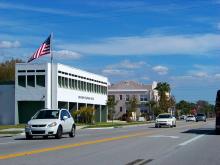
Nothing personifies the dysfunction of the last commission majority and its "shadow government" more than Lake Point LLC's lawsuit against the county. And worse, an arbitrator ruled against the county in a separate Lake Point lawsuit alleging egregious -- possibly criminal -- public records violations by three commissioners. Bottom line: County taxpayers will pay the rock mine operation's attorney-fee bill, $371,800. There will be no appeal. And if the county loses the original case, it could cost millions more in attorney fees.
Indiantown is home to less than 4 percent of Martin's population yet provides 16 percent of its ad valorem taxes. It is the ideal place for heavy industry. Pure and simple, it's a tucked-away economic engine that bothers virtually no one.
A 2005 study, conducted by The Center for Urban & Environmental Solutions (CUES) at Florida Atlantic University identified two big weaknesses in Indiantown’s ability to attract growth: quality and diversity of housing choices, and poor governmental relationships. In 12 years, the situation has only worsened.
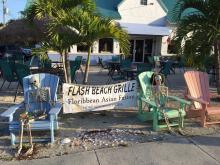
More specifically, the report found “strong concerns about the negative relations" between other aspects of Martin County government -- the County Commission specifically. "It is perceived that businesses are not welcome due to the onerous permitting process and delays from the public sector cause private investors to seek locations outside of the county. This is a 'fatal flaw' in economic development …,” the report notes.
It's gotten so much worse since the CUES study was completed.
Indiantown has consistently hammered away at attracting economic drivers and business expansion, only to have those efforts denied, delayed or regulated out of existence by Martin's shadow government -- a boat manufacturing plant conversion and Indiantown Airport and Bay State Milling expansions are all examples.
Without a doubt, the last straw was EcoGen. Nothing did more than the EcoGen experience to put Indiantown on Independence Road.
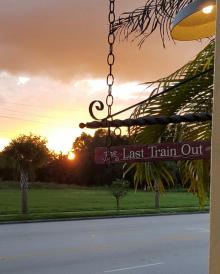
Last July -- despite strong community support -- the County Commission chased out the biomass electric generating plant proposed for the Indiantown industrial area -- an operation that would have made the company the second largest taxpayer in the county. It just didn't want to stick around any longer to play Martin's games.
Much-needed jobs aside, EcoGen would have provided annually $450,000 in tax revenue, $20.5 million in output sales (money put back into the community) and $6.7 million in payroll.
Alas, EcoGen's request fell victim to Martin's unelected shadow government, led by Hurchalla and Sherlock. And despite the commissioners' original enthusiasm, county staff recommended denial and all commissioners but one followed like lemmings. Read the sad story here.

About once every 10 years beginning in the 1970s, the Indiantown industrial area has welcomed a new industry to the area: Florida Power & Light Co. (Martin's largest taxpayer), Caulkins juice plant (now Louis Dreyfus Citrus), Indiantown Cogeneration, Bay State Milling and Tampa Farm Service (owned by Cal-Maine, Publix's largest source of eggs). EcoGen would have been the next. And the Indiantown community would have blessed the day.
Two of those operations have or will shutter their operation over the next 12 months, potentially causing a decline in Martin County’s tax base, and a significant reduction in economic opportunities in Indiantown. To date, Martin County has made no effort to attract replacement industries to these sites, but rather, has discouraged new jobs and investment from coming to Martin County.
Hobe Sound's story of commission interference is less dramatic than Indiantown's. In fact, Town of Hobe Sound organizer Mike Ennis has insisted, “This (incorporation) has nothing to do with anything the county (commission) did or did not do. This is about zoning; we're all about small shops and keeping our small-town character.”
But some say there was a tipping point for the incorporation drive: Flash Beach Grille
Until the County Commission rigidly tried to fine Flash Beach Grille out of business three years ago, there was little appetite for incorporation in this community separated from wealthy Jupiter Island by the Intracoastal Waterway. Read Flash Beach Grille's story here.
"I don't think I've ever seen a county commission quite so inclined to interfere with a business, even when they knew they were in the wrong to begin with," Mark Miller, managing attorney of the Pacific Legal Foundation's Florida office, said at the time. PLF is the private property rights firm whose lawsuit forced the county to back into a manageable settlement.
Attorney Anne Scott represented Hobe Sound through it all. Scott was the only one of the three commissioners implicated in the Lake Point public records lawsuit who was up for re-election last fall. She lost resoundingly to political newcomer Harold Jenkins, 61 percent to 39 percent.
Meanwhile, Indiantown's Independence Executive Committee claims the county wouldn't suffer if the community incorporates. It would actually realize a 0.75 percent decrease in its ad valorem tax budget. In fact, Martin still would provide the town sheriff and firefighting services.
"In 2016, Martin County spent over $4 million in lawsuits, many of which were frivolous land use challenges," the committee said in a statement it prepared for the Legislature. "Rather than continuing the historic trend of litigation resulting from infringement over private property rights, the county could use this 'peace dividend' to cover any impacts generated by the incorporation of Indiantown."
If ever there was a poster child for a need for incorporation, it's Indiantown. And while I hope the Legislature will pass both HB 259 and HB 261, it seems to me it would be an aching travesty -- a compound fracture, frankly -- to deny disrespected, underappreciated Indiantown a chance to call its own shots.
Reach Nancy Smith at nsmith@sunshinestatenews.com or at 228-282-2423. Twitter: @NancyLBSmith


